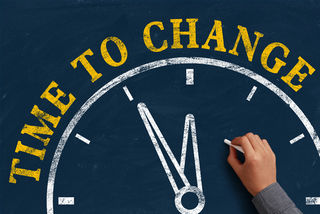Environment
Game On vs. Climate Change
It's time for more of us to step up as climate leaders
Posted November 19, 2018

Climate change wins, and we lose, due to an insidious supply/demand imbalance: We don’t have enough leaders doing what's needed to meet the many demands upon us driven by our changing climate. Meanwhile, the prices we pay, in lives and possessions, keep rising,
Severe weather events and their severe human consequences, together with the discouraging new report by the International Panel on Climate Change (IPCC), show that we live in a critical period requiring a major course correction. Meanwhile, the Trump administration dismisses climate change as fake news.
We know the causes and the technical solutions. But we are missing the human solution. Here it is: Starting now, we need more people everywhere to become more active climate leaders.
Rethinking Climate Leadership
Usually, we think of leaders as those who occupy formal, high-level positions of power. We depend on them, hope they will deliver what’s needed, and get angry when they don’t.
However, relying on our putative leaders is not working. To counter climate sabotage and fill the void left by passive politicians, we need more “average citizens” to become unofficial, informal climate champions. More of us need to "lead from below” to initiate and maintain multi-pronged action.
This view of leadership is profoundly different from the traditional top-down view. It calls for more people, anywhere and everywhere, to take on new responsibilities and new roles. This doesn't mean just ratcheting up our personal efforts. It means becoming true climate leaders, influencing one another to take not just more individual action, but also more collaborative action and more effective action.
This leadership re-think calls for adaptive climate leadership. As other species attempt to adapt to climate change, so must we. Complex social systems like ours must cope with change via purposeful, dynamic adaptation. This won’t happen fast enough unless citizen-leaders in every sector and locale think strategically about the future and take major action on its behalf. Without such systemic human change, powered by new leaders everywhere, business as usual prevails, our slippery slope steepens, and we lose control over our own futures.
How to Become an Adaptive Climate Leader
Adaptive leadership happens when anyone anywhere—working not just in their own arenas but also across geographical, political and other “boundaries”—takes action and influences others to do the same.
Developing your own climate leadership starts with deciding to do so. There’s no better time than now.
Leaders develop by initiating and learning from new conversations with new people. Most Americans don’t talk much about climate change, and when they do it’s typically with the same people saying the same things. This is not accomplishing anything.
It doesn’t help to rehash old arguments about whether global warming and climate change exist; they definitely do, and most Americans know it. Now it's time to decide which solutions—preparing cost-effectively for the coming changes, reducing harmful emissions, reducing beef and cow milk consumption, convincing politicians and companies to take a variety of actions including carbon pricing—will move us forward, plus how we can create them collaboratively and therefore successfully over time.
What you decide to do personally doesn’t need to be difficult, but it does need to be impactful—expressing views to elected representatives, encouraging people to vote officials out of and into office, exploring local needs and resources and opportunities, finding others to partner with, or creating innovative paths to greater progress.
Ask your usual conversation partners, "What can we do together that we haven’t yet tried?" Ask someone new, "What do you see and know about climate change that I don’t, where do we agree, and how can we collaborate for constructive action? How can I, and we, learn to engage others more effectively?" Along the way, learn how to conduct crucial conversations via genuine dialogue rather than useless debate.
And keep pounding on this message: Acting now offers the highest leverage at the lowest cost. The longer we wait, the more difficult and costly climate action will become.
Adaptive leaders don’t know all the answers, but they jump into the pool and try, because so much is needed. Then they build bridges to work constructively with people holding different perspectives and knowledge, to develop and implement the most productive solutions.
More Action, Now
We know what climate change threatens: people, water, trees, animals, food, health, economies, sea levels, migration, war, and more. That should be convincing enough, but we continue not doing enough.
Some commentary on the recent IPCC report sounds dire, and some people are discouraged. It’s true that the climate-change train has left the station, but it can and must be slowed. We know what to do, but we need adaptive leadership everywhere to make sure we do it. As long-time climate champion Paul Hawken puts it, “It’s not game over. It’s game on.”
References
Nordhaus, W. (2015) The Climate Casino: Risk, Uncertainty, and Economics for a Warming World. New Haven: Yale University Press.




